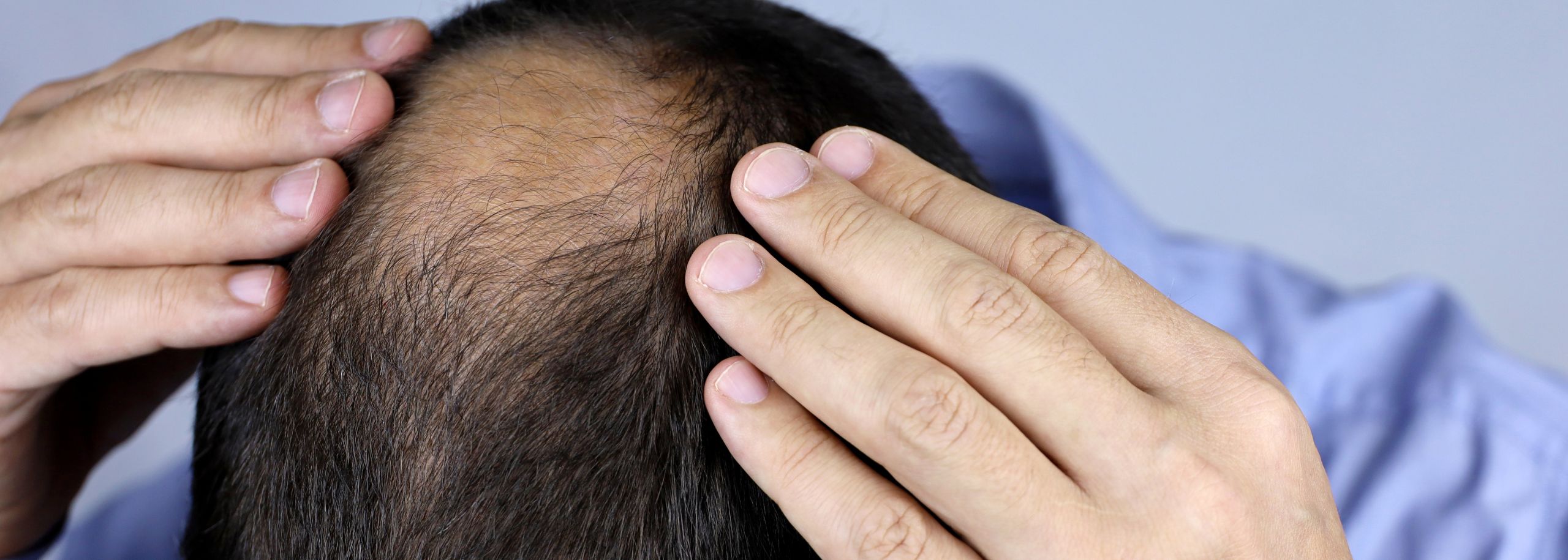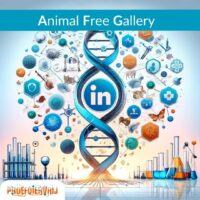We lose an average of 100 hairs per day. That might sound like a lot, but don’t worry: each day around 100 new hairs grow as well. At least, that’s the case for most of us. 1 in 5 people in the Netherlands experience hair loss, which can be caused by illness or medication. Sometimes no specific cause can be identified, which is why research into hair loss is still very much needed. The good news? This research can be done without the use of lab animals!
The Korean cosmetics company Cosmax recently presented groundbreaking research on male hair loss. In collaboration with Organoid Sciences, they developed an organoid based on the human scalp. By injecting this organoid with male hormones, they were able to simulate the process of hair loss. This method opens up new possibilities for preventing and/or treating hair loss in men.
Although the use of organoids in the cosmetics industry is not new, Cosmax is the first to explore the prevention and treatment of hair loss using simulated human hair follicles.
The future of cosmetics lies with organoids
Cosmax plans to further develop and expand their research with organoids. “Due to the increasing demand for alternative methods to animal testing, the development of organoids will gradually become an important area in the cosmetics industry,” said a Cosmax representative. “We will continue to verify the effectiveness of our materials more accurately in the future by developing new organoids.”
And that’s good news for lab animals! Research into hair loss has traditionally been conducted on rodents such as mice and rabbits, or larger animals like sheep. These animals are often shaved, genetically modified, or injected with hormones and/or potentially toxic substances during these studies. Thanks to innovations like those from Cosmax, this could soon be a thing of the past.
Cosmetics and animal testing
The use of animals for cosmetic testing has been banned in an increasing number of countries. In Europe, such testing has been prohibited since 2013, followed by Colombia in 2020 and Brazil in 2023. In total, more than 40 countries worldwide have banned animal testing for cosmetics.
Nevertheless, animal testing for cosmetics remains a persistent issue due to various exceptions. Our science and innovation advisor, Anne, is therefore pleased with the news: “When large companies like Cosmax adopt animal-free models, it has an immediate positive effect on reducing the use of lab animals.
Source: koreatechdesk.com
Join our LinkedIn group
The Animal Free Gallery is your platform to share successes, exchange knowledge, and network with like-minded professionals and scientists. Together we can make strides towards innovations without animal testing. Join us and celebrate every development towards ethical and innovative research!


